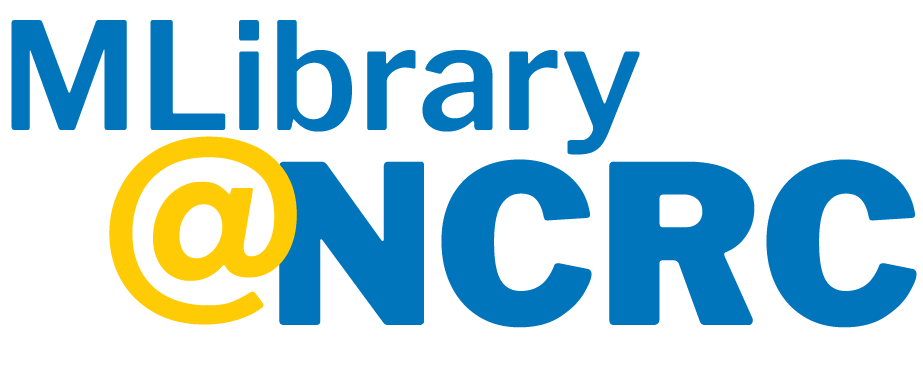|
|
|
IHPI members can apply for up to $10,000 and also receive support from IHPI Policy Engagement & Communications staff. Policy Sprint teams will undertake rapid analyses to address emerging health policy questions around COVID-19 and produce content that can inform ongoing decision-making at the local, state, national, or international level.
|
|
The U-M
National Poll on Healthy Aging (NPHA) publishes its data for public use on an ongoing basis to help advance research on aging. A new wave of NPHA data is now available for download at the National Archive of Computerized Data on Aging (NACDA). NACDA's Open Aging Repository is a free, self-publishing option for gerontological researchers to share their research projects.
|
|
Rebecca Cunningham, M.D., professor of emergency medicine, was appointed vice president for research at the University of Michigan.
Cunningham, who has served in an interim capacity since June 1, began her five-year appointment April 1.
|
|
|
|
|
|
|
H. Luke Shaefer, Ph.D., was appointed as the inaugural Hermann and Amalie Kohn Professor of Social Justice and Social Policy at the Gerald R. Ford School of Public Policy. The named professorship builds on the Ford School's long-standing strengths in social policy, including research on poverty and anti-poverty policy.
|
|
|
Lee appointed Ambulatory Care Clinical Chief for Pediatric Medical Specialties
Joyce Lee, M.D., M.P.H., professor of pediatrics, was appointed as the Ambulatory Care Clinical Chief (ACCCs) for Pediatric Medical Specialties within the Children's Specialty and Women's Oversight Team.
|
|
|
|
 |
|
MIDAS announced awardees of special COVID-19 PODS grants
|
The Michigan Institute for Data Science (MIDAS) announced their COVID-19 data science grants. Seven interdisciplinary teams, chosen from 49 submissions, will receive funding support for COVID-19 research. IHPI member projects include:
- Improved real-time surveillance of COVID-19 patients' electronic health records using transfer learning and ordinal regression,
Andrew Admon, M.D., M.P.H., clinical lecturer of internal medicine.
- Estimating county-level age group contact rates from time use data, Yajuan Si, Ph.D., M.Sc., research assistant professor at the Institute for Social Research
- From data to knowledge: Applying the principles of data science to understand preventable inequities in care and support among COVID-19 cases in Michigan, Nancy Fleischer, Ph.D., M.P.H., associate professor of epidemiology
- Handling selective and imperfect testing in design and inference of COVID-19 studies, Bhramar Mukherjee, Ph.D., M.S., M.Stat., professor of biostatistics
|
|
 |
| |
Research & Policy
HIGHLIGHTS
|
|
|
Opioid prescribing limits for acute pain have had modest effects in limiting overprescribing. IHPI researchers outline why that may be, and discuss potential policy considerations to maximize the ability of limits to reduce excessive prescribing.
|
Even before the coronavirus pandemic wreaked havoc with the nation's food supply and economy, one in seven adults between the ages of 50 and 80 already had trouble getting enough food because of cost or other issues, a new
National Poll on Healthy Aging report finds.
|
The potential to improve hypertensive patient care inspired a multidisciplinary team of researchers to secure a $2.5 million grant from the American Health Association to establish a new mHealth technology research center at U-M, led by
Brahmajee Nallamothu, M.D., M.P.H., professor of internal medicine, where studies can be performed to help scientists and doctors understand how to use smartphones and wearables to improve lifestyle behaviors.
|
When COVID-19 struck, Assistant Professor of Surgery and Michigan Value Collaborative director
Hari Nathan, M.D., Ph.D., and his colleagues realized data could help hospitals understand which operations are most resource-intensive. Now, as hospitals across the country start to return to doing non-emergency operations, the MVC has developed a new guide that could help them prioritize and plan.
|
|
|
|
|
Featured Member
 |
|
"I am interested in the effectiveness of publicly provided, free or low-cost health insurance, such as Medicaid, in reducing mortality and morbidity of recipients. I also examine the potential of supply-side innovations such as telehealth for improving health outcomes."
|
|
 |
|
Nursing
|
 |
|
Internal Medicine
|
 |
|
Computational Medicine and Bioinformatics
|
 |
|
Public Health, Biostatistics
|
|
| |
Connect to
EDUCATION &
RESOURCES
|
|
 |
|
IHPI will be hosting weekly virtual student
lunch-and-learn sessions and skill-building seminars during June and July for students working with IHPI faculty this summer.
|
|
 |
|
HIGHLIGHTED RESOURCE
|
|
 |
|
DEADLINE: June 30, 2020
A new COVID-19 decision modeling initiative will award 6-10 grants of up to $50,000 each to organizations researching coronavirus decision models.
The new initiative builds on this work to deepen the connections, technical know-how, and directed activity to inform clinical, health services delivery, and policy decision making related to COVID-19.
|
|
 |
|
DEADLINE: August 5, 2020
The Diabetes Interdisciplinary Studies Program is sponsored by the Michigan Diabetes Research Center and promotes new interdisciplinary collaboration between two or more members of the University of Michigan faculty from DISTINCT disciplines to focus their combined research strengths on cutting-edge areas in diabetes research.
|
|
 |
|
DEADLINE: September 1, 2020
Stand Up To Cancer (SU2C) invites applications for the SU2C Health Equity Breakthrough Team Research Grant Program. The Breakthrough Team represents an unprecedented opportunity to bring together the best scientific minds from diverse fields of research to concentrate on new approaches to address health disparities in the context of cancer research.
|
|
A computational model now in development could give a Michigan hospital and its care providers a leg up on COVID-19 by predicting which patients are likely to quickly deteriorate upon admission. Once implemented, the model, called M-CURES, could help the hospital anticipate fast-changing patient needs while keeping care providers safe.
M-CURES was developed by a team of computer science, industrial operations engineering, and health care researchers at the U-M College of Engineering, Precision Health, and Michigan Medicine.
|
Rapid shifts removed out-of-pocket costs that could keep people from getting coronavirus care. Insurers did what experts like
Mark Fendrick, M.D., professor of internal medicine, have been telling them they should be doing for nearly two decades: Keep money from being a barrier to the types of care that patients need the most, to improve health and possibly save money down the road.
|
|
|
|
|
The Centers for Disease Control and Prevention is seeking nominations for membership on the Community Preventive Services Task Force (CPSTF). The CPSTF produces recommendations to help inform decision-making, identifying population health interventions that are scientifically proven to save lives and improve quality of life.
Nominations are due by June 26, 2020, to fill vacancies anticipated for both calendar years 2021 and 2022.
|
|
|
|
About IHPI
The Institute for Healthcare Policy and Innovation is committed to improving the quality, safety, equity, and affordability of healthcare services.
To carry out our ambitious mission, our efforts are focused in four areas:
- Evaluating the impact of healthcare reforms
- Improving the health of communities
- Promoting greater value in healthcare
- Innovating in IT and healthcare delivery
Support IHPI
If you are interested in supporting health services and health policy research at the University of Michigan,
click here.
Inside IHPI is published monthly by the University of Michigan Institute for Healthcare Policy & Innovation.
Follow IHPI
|
|
Contact Us
U-M Institute for Healthcare
Policy & Innovation
North Campus Research
Complex (NCRC)
2800 Plymouth Road, Building 16
Ann Arbor, MI 48109
Eileen Kostanecki
Christina Camilli-Whisenhunt
Kara Gavin
Research & Policy Media Relations Manager
|
Spread the Word!
Did you receive this newsletter from a friend?
Please email
[email protected] to be added to our mailing list.
|
|
|
|
|